Pope Francis has died after leading the Roman Catholic Church for more than a decade.
The Argentine pontiff spent 38 days being treated for double pneumonia at a Rome hospital before seeming to recover, leaving the facility last month.
His death came just a day after he delighted crowds of worshippers at the Vatican on Easter Sunday with an appearance on the balcony at St Peter's Basilica.
The energetic reformer inspired widespread devotion from Catholics but riled traditionalists.
Here are some of the most defining images from the 88-year-old's life and papacy.
Early life

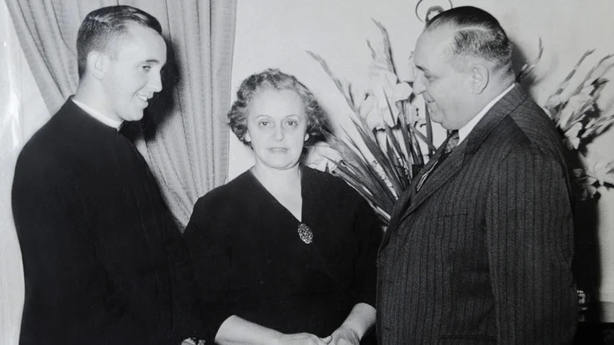
Jorge Mario Bergoglio was born in Buenos Aires in Argentina on 17 December 1936.
His father, Mario José Bergoglio, was an accountant who fled Italy in 1929 to escape the fascist rule of Benito Mussolini.
In the undated photo (above) newly named priest Bergoglio poses with his mother Regina Maria Sivori and his father Mario Bergoglio.
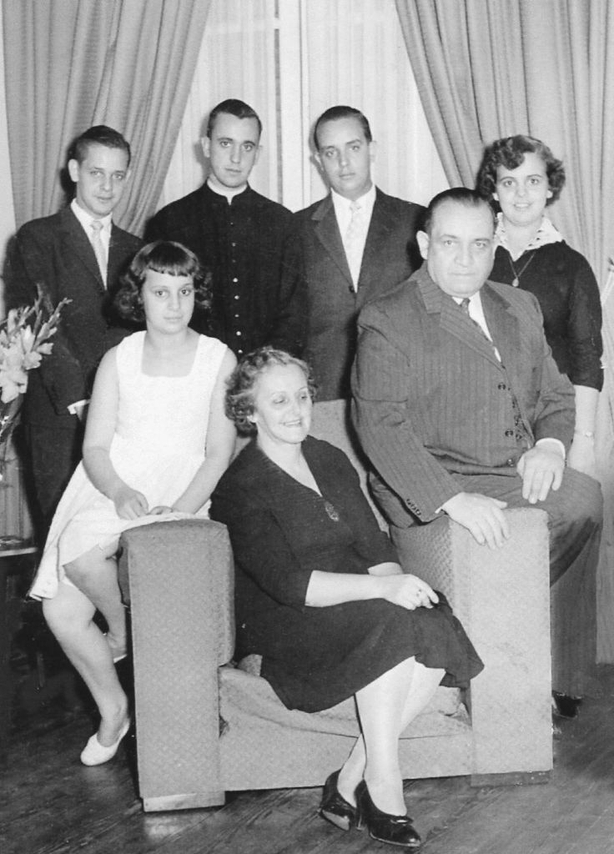
His mother, Regina María Sívori, was of northern Italian origin. She stayed at home to raise the children, of which Bergoglio, second-left standing, was the eldest of five.
Early church years
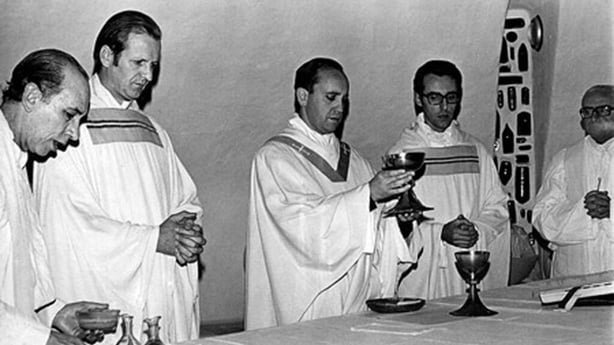
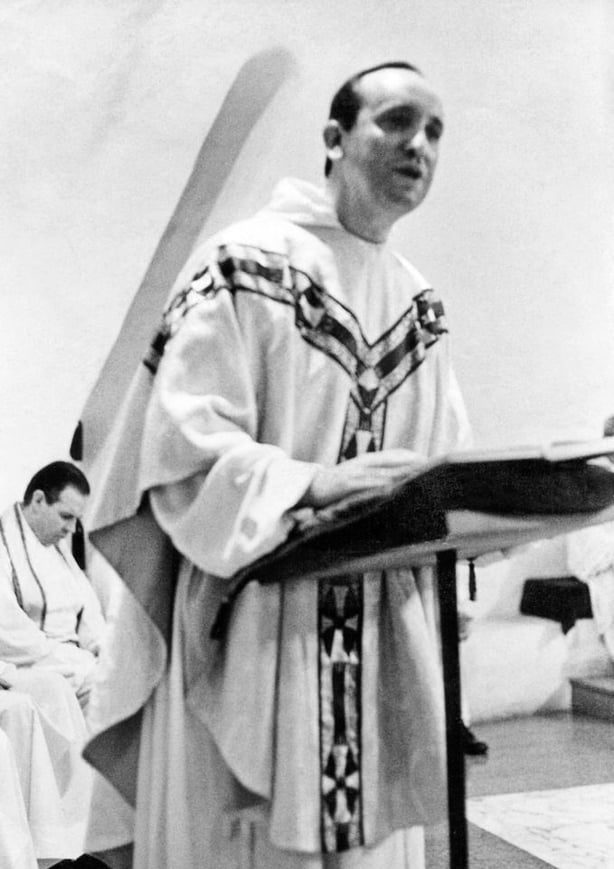
Bergoglio first became a Jesuit in 1960 before rising through the ranks and eventually becoming metropolitan archbishop of Buenos Aires in 1998.
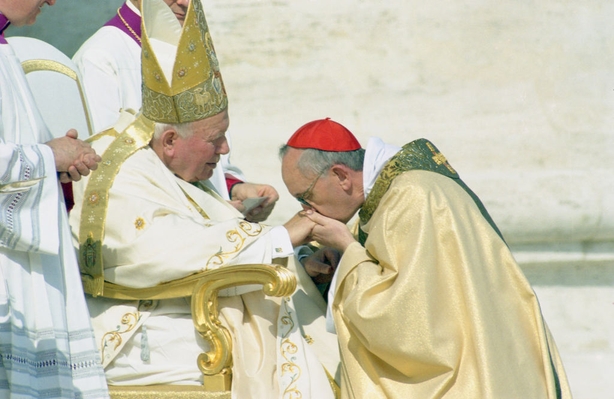
In 2001, he was assigned the title of cardinal priest by John Paul II in the Vatican.
Pictured above, Pope John Paul II (Karol Wojtyla) names Jorge Mario Bergoglio as cardinal during a consistory in St. Peter's Square on 21 February 2001 in Vatican City, Vatican.


Bergoglio was among the candidates to succeed John Paul II in 2005, a position that would ultimately go to Joseph Ratzinger.
Elected pope
In February 2013, Pope Benedict became the first pope to resign since Gregory XII in 1415 and the first without external pressure since Celestine V in 1294.
On 13 March 2013, Cardinal Bergoglio was elected pope on the fifth ballot of the 2013 papal conclave, becoming the first pope to take the name Francis, which he did in honour of St Francis of Assisi.
The new pope appears on the balcony of St. Peter's Basilica to crowds of well-wishers.
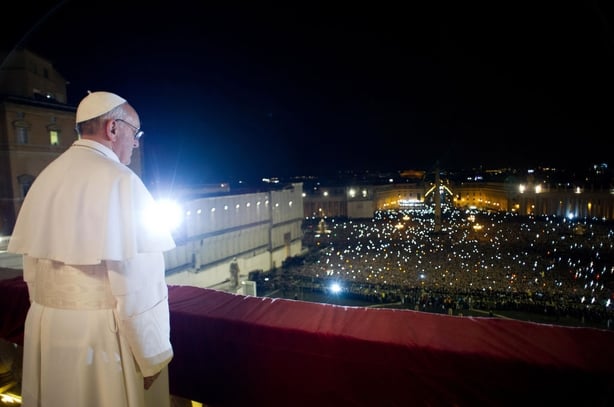
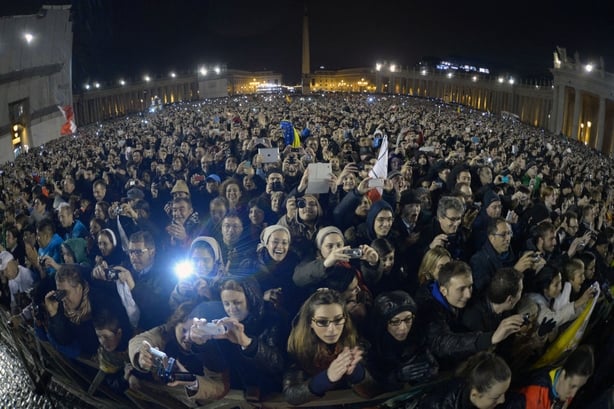
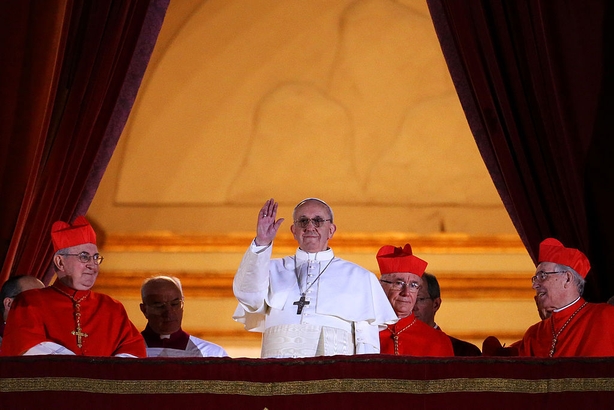
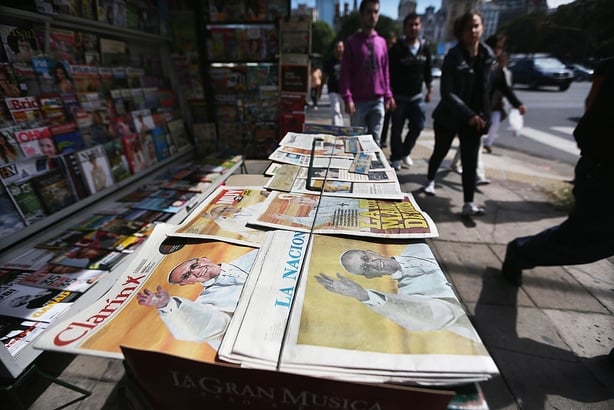
He was the first ever pope from the Americas, the first from outside Europe in more than a millennium, and the first Jesuit to be elected. In his first remarks from St Peter's balcony, Francis asked the crowd: "Pray for me."
The two popes
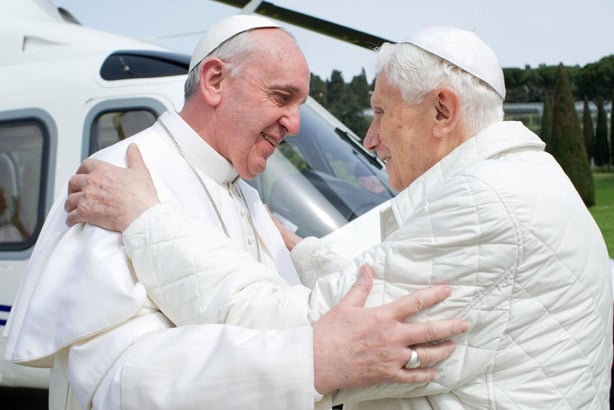
Pope Francis greets Pope Emeritus Benedict XVI (above) later in 2013 as he arrives by helicopter at the papal summer residence of Castel Gandolfo for a meeting and lunch with Benedict.
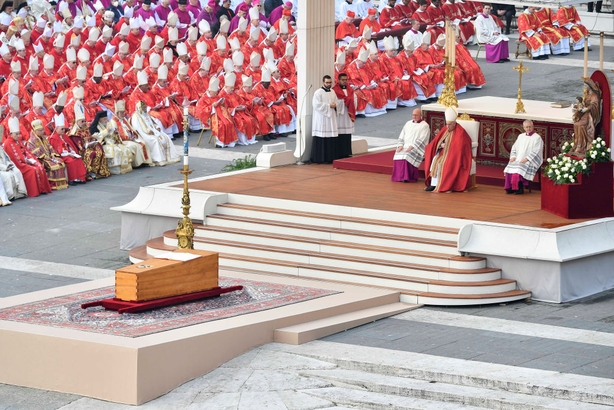
Years later, when Emeritus Pope Benedict died in December 2022, Francis paid tribute to his "dearest" predecessor who he described as "so noble, so kind".
Apologies
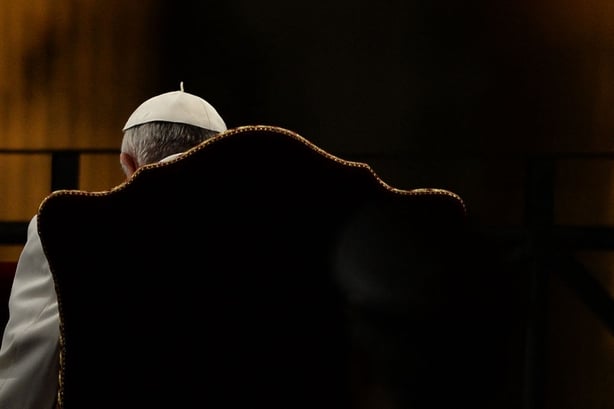
Throughout his tenure, Francis would make several significant apologies on behalf of the Catholic Church.
In 2014, a year into his papacy, Pope Francis personally asked for forgiveness for child sex abuse by priests, the first time he had made such an apology since his election.
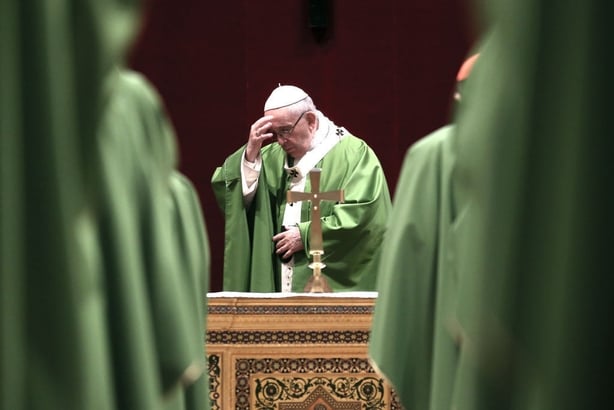
In 2016, he said the Church should apologise to gay people for the way it has treated them and called on the Church to show them respect.
Visit to Ireland
In 2018, Pope Francis became the first pope to visit Ireland since John Paul II in 1979.
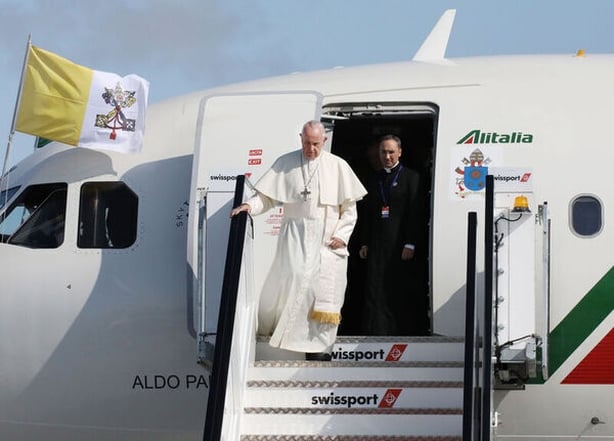
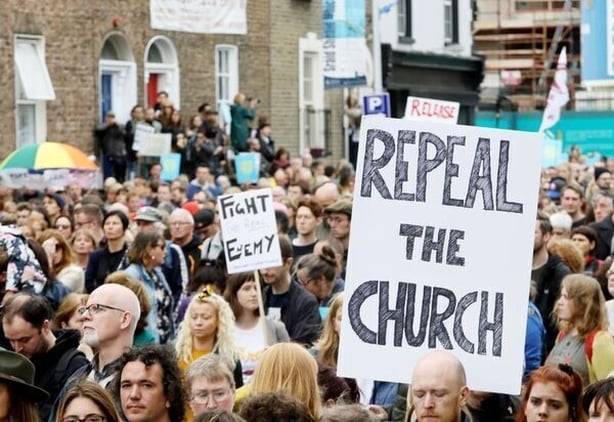
However, Ireland had changed drastically in the near 40 years in between, with the scandals of clerical sex abuse, and the legacy of mother-and-baby homes and Magdalene Laundries leaving a weary, distrustful and angry society in its wake.
Some protesters (above) gathered to coincide with the Papal Mass at Phoenix Park, before walking to the site of a nearby former Magdalene laundry, during the Pope's visit.
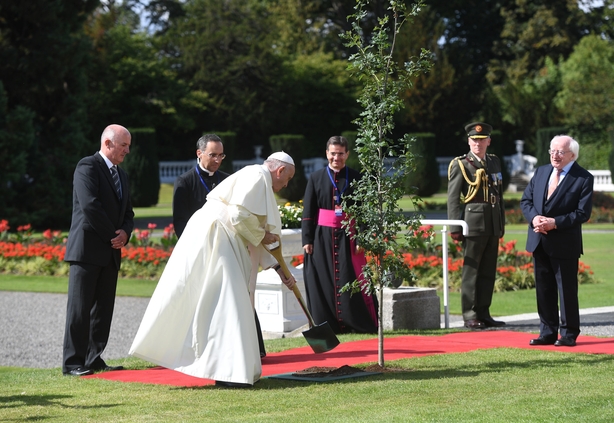
After meeting President Michael D Higgins and signing the guest book at Áras an Uachtaráin, the Pope planted an Irish oak tree on the same presidential grounds as Pope John Paul II decades before him.
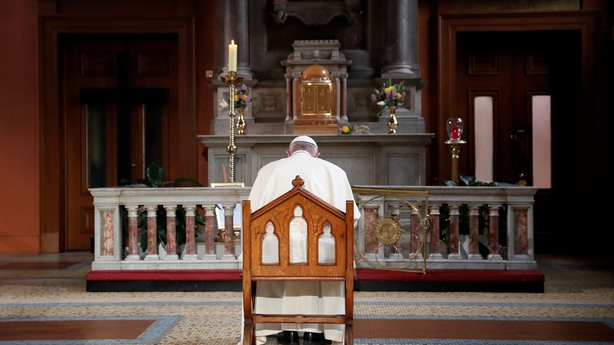
In one of the most poignant moments of his visit, the Pope sat for a number of minutes in silent prayer at the Candle of Innocence, a perpetually lit candle in St Mary's Pro-Cathedral for the survivors of clerical sexual abuse.
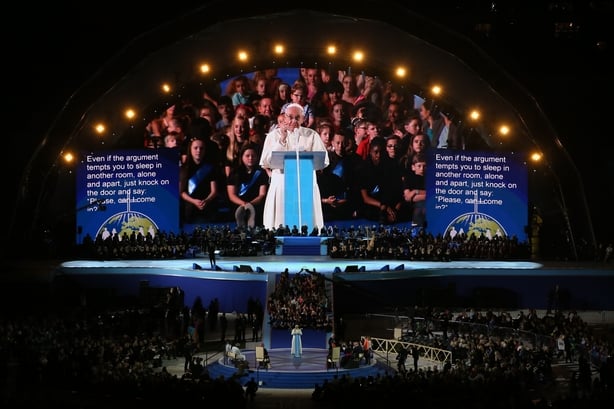
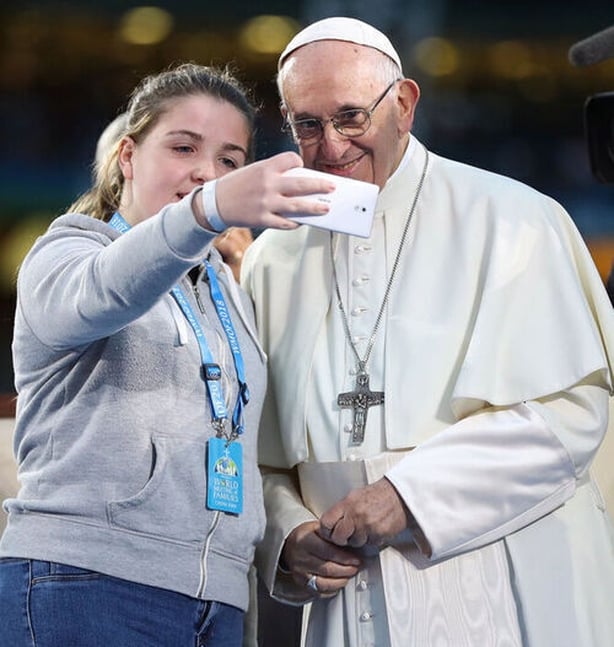
The key event of his visit was the Festival of Families gathering at Croke Park, which was aimed at reminding people about those who are struggling, particularly migrants and refugees.
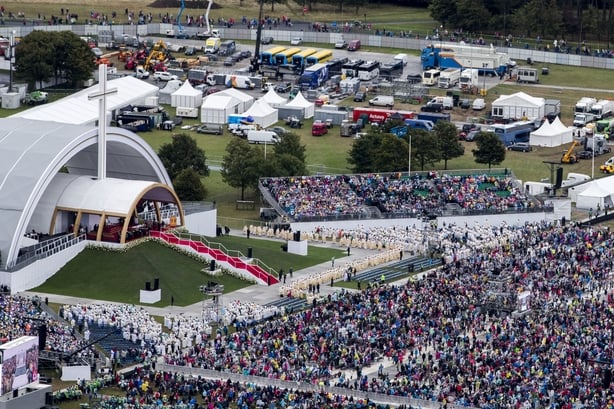
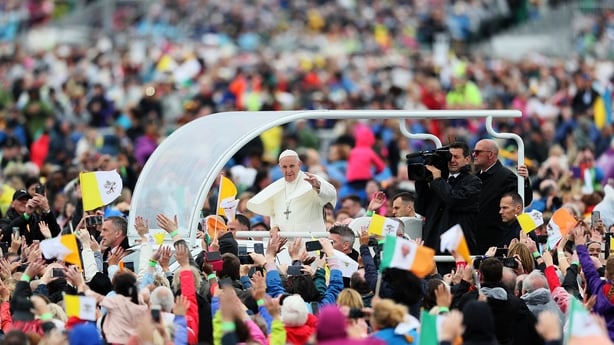
During the closing mass in the Phoenix Park, Pope Francis again asked for forgiveness for the crime of sexual abuse by priests and subsequent cover-ups.
Pope in Iraq
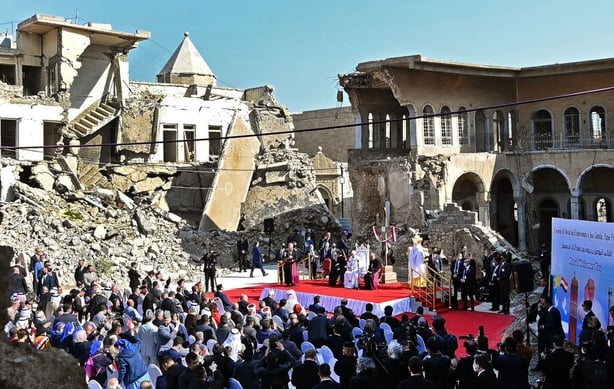
In March 2021, the Pope made history by becoming the first pontiff to visit Iraq. It was his first trip following the Covid-19 pandemic, covering more than 1,400km inside the country, bringing encouragement to its diminished Christian community and calling for an end to violence and extremism.
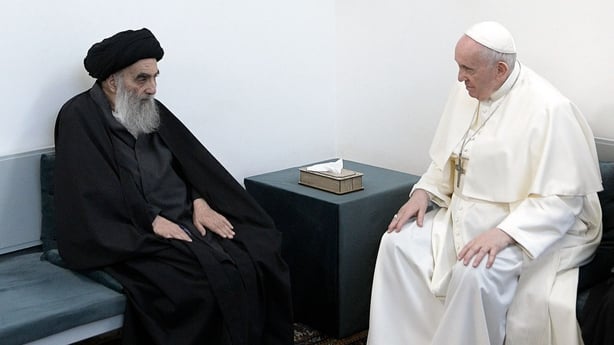
In one of the most significant moments of the trip, Pope Francis met Iraq’s Shia leader, the Grand Ayatollah Ali al-Sistani, extending a hand to Shia Muslims.
Canada
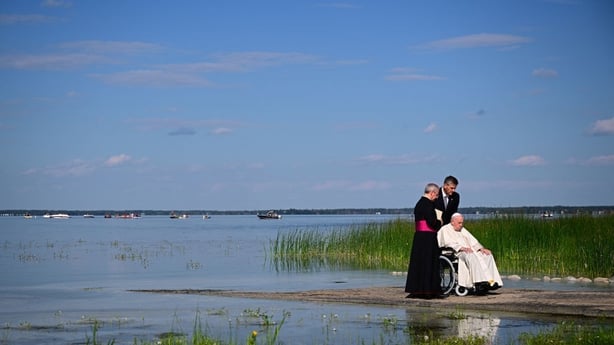
In July 2022, the Pope embarked on another historic trip, visiting Canada, where the focus was on addressing decades of abuse at Catholic-run residential schools.
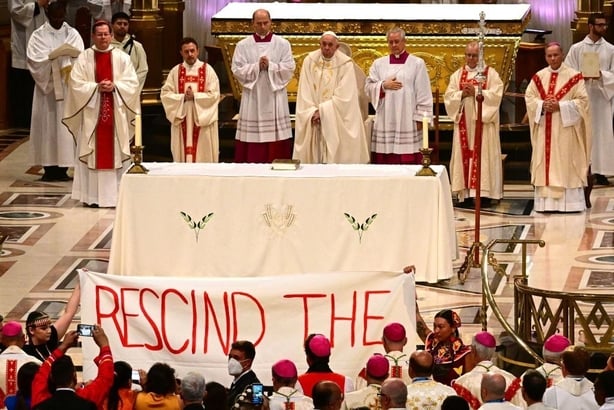
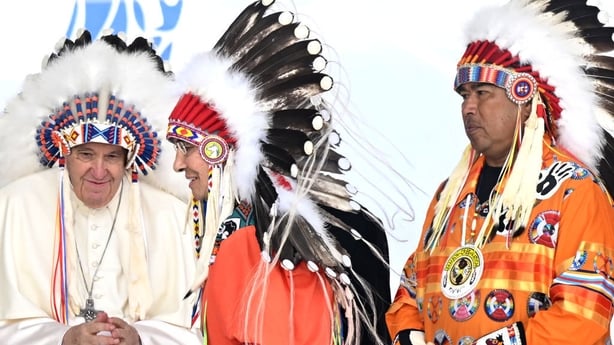
He was again met with protest, but pleaded for forgiveness for the "evil" inflicted on the country’s Indigenous people, some of whom were taken from their families as children in what has been branded a "cultural genocide".
Climate
While his predecessor Benedict had been dubbed the "Green Pope", Francis too made great strides in promoting environmental stewardship.
Most notably, in 2015, he urged the world to act quickly to prevent "extraordinary" climate change from destroying the planet in a near 200-page document, titled 'Laudato Si’ or ‘Praise Be to You’.
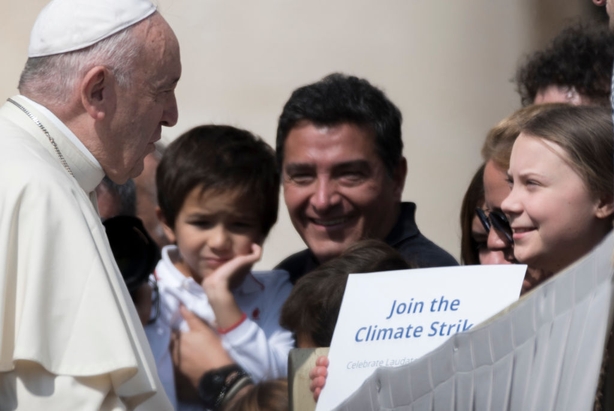
He called on "every living person on this planet" to engage in inclusive dialogue about how we shape its future, emphasising the importance of caring for our common home.
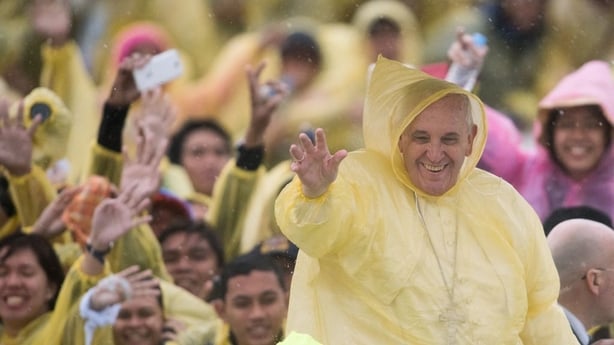
Young people
In the Laudato Si’ document, Francis made it clear how important a role young people have to play in the efforts to care for the Earth and ensure its future.
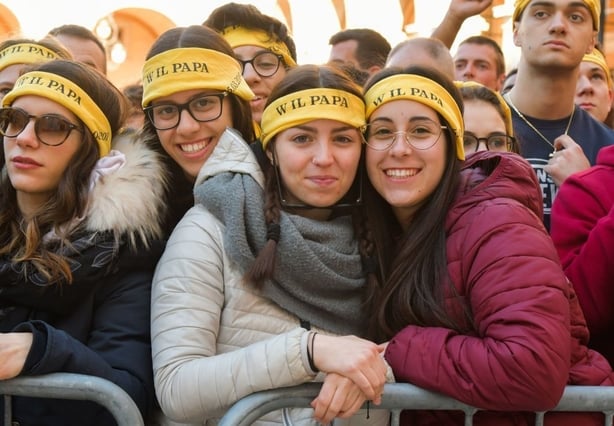
And in 2019, he aimed to highlight how crucial young people were to the Church by inviting bishops to listen to their voices in a special synod convened in the Vatican.
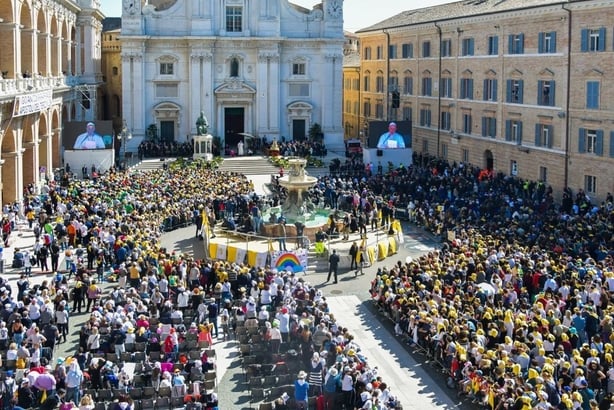
Pope on conflict
In recent years, Pope Francis had been a powerful voice on conflicts in the world.
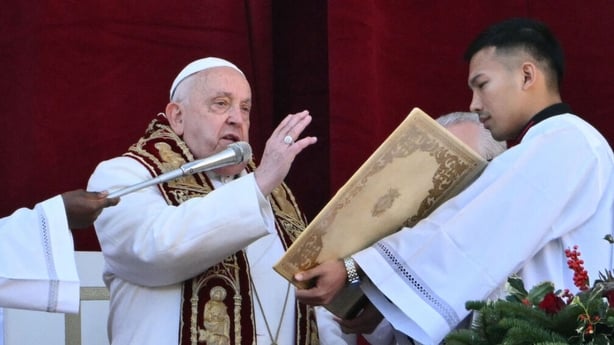
In his Urbi et Orbi address from the central balcony of St Peter's Basilica, he mentioned the conflict directly, saying: "May the sound of arms be silenced in war-torn Ukraine."
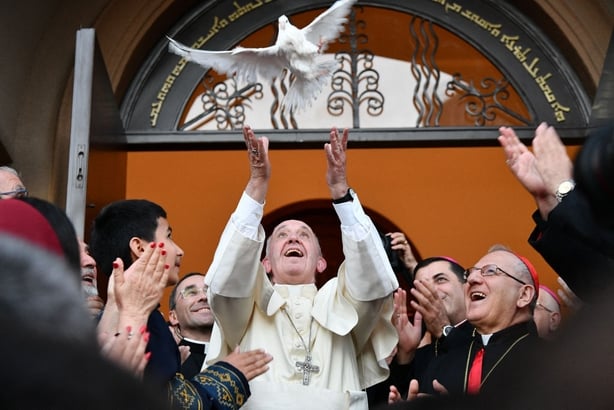
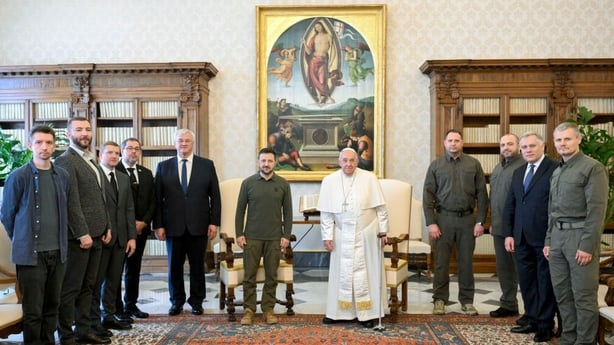
In January of this year, he stepped up his criticisms of Israel's military campaign in Gaza, calling the humanitarian situation in the Palestinian territory "very serious and shameful".
Tributes
Pope Francis was admitted to Rome’s Gemelli hospital on 14 February with breathing difficulties after which his condition deteriorated, sparking widespread concern among Catholics.
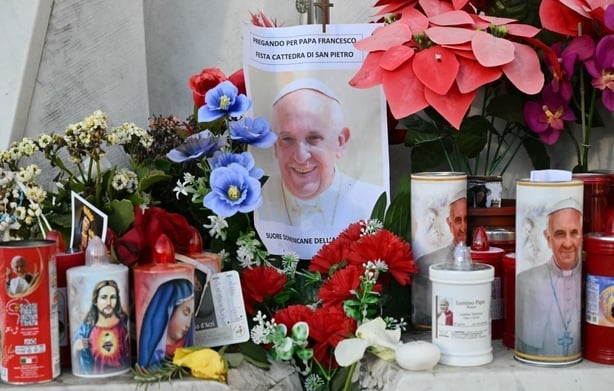
Catholics across the globe began praying for his recovery, particularly in Rome and his home city of Buenos Aires.
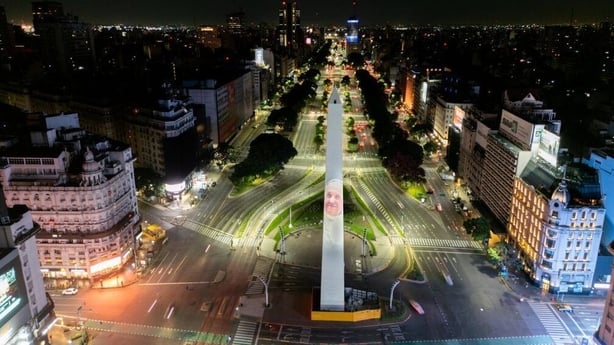
The Argentine pontiff spent 38 days being treated for double pneumonia at Rome's Gemelli hospital before seeming to recover, leaving the facility on 23 March.
He had recently resumed some official duties during his recovery .

The Pope made his first public appearance since his bout of double pneumonia on 6 April, when he appeared in St Peter's Square in a wheelchair during a special Jubilee Mass for the sick following his discharge from hospital two weeks previously.
Francis had emerged from his convalescence on Easter Sunday to bless the thousands of people in St Peter's Square in Vatican City.


"Happy Easter," he said in a weak voice from his wheelchair at the balcony of St Peter's Basilica, to the delight of around 35,000 people in the flower-filled square.

